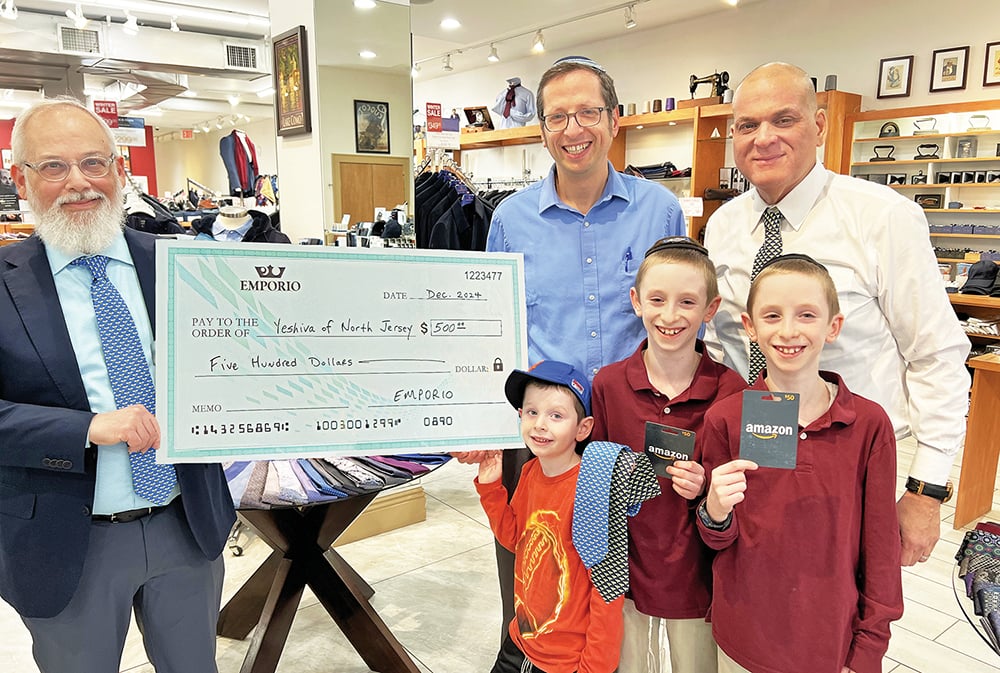

(Courtesy of SMGH) “Your cardiac tests came back with unfavorable results, so your next step is a procedure to fix the issue,” said George Matyjewicz, PhD, community liaison at St. Mary’s General Hospital. “At Prime Healthcare’s four New Jersey hospitals—St. Mary’s General Hospital in Passaic, Saint Clare’s Health in Denville and Dover and Saint Michael’s Medical Center in Newark, we have a team of nationally recognized, expert cardiologists who offer the full range of interventional cardiac services. Let’s look at minimally invasive, non-surgical treatments to open narrowed coronary arteries and restore blood flow to the heart.”
Catheterization for STEMI – STEMI, or ST-elevated myocardial infarction, is a type of heart attack where an artery that supplies oxygen-rich blood to the heart is mostly or completely blocked. Every minute counts during treatment, as the blockage can be fatal.
“Time is muscle during a heart attack, so the sooner you open the artery, the more muscle you save and the better the outcome,” said Stanley Szwed, MD, regional director of interventional cardiology at St. Mary’s General Hospital in Passaic. “The goal is to open the artery within 90 minutes of completing an electrocardiogram test.”
He also noted Prime Healthcare’s New Jersey facilities have received five-star ratings in these processes from Healthgrades, a leading resource for comprehensive information about physicians and hospitals. The catheterization team successfully treats more than 100 patients with STEMI each year.
Stenting—A stent is a small, tubular device made of metal, plastic mesh or fabric. When the blood vessels around the heart are constricted or blocked during a heart attack, a balloon is inserted during a procedure called angioplasty to reopen the vessel. A self-expanding stent is then permanently inserted to keep the artery from re-closing. Some stents are coated with medicine (called “drug-eluting stents”) to prevent buildup of fatty deposits that could block the artery.
Radial Catheterization—Stents are typically inserted through the groin or arm. During radial catheterization, however, these artery-opening devices are inserted through a small incision in the wrist. “The procedure, which helps identify blocked arteries as a cause of chest pain, provides an extra measure of safety for patients with obesity or who are unable to lie flat during catheterization,” Dr. Szwed said.
“While we still perform cardiac interventions through the groin/arm approach to deliver balloons/stents into blocked arteries, the radial technique is the safest way of reducing bleeding and arterial injury,” Dr. Szwed said.
Heart Pump—All Prime Healthcare hospitals in New Jersey offer temporary heart support with the Impella® device, a pump that helps ease the demands placed on a severely weakened heart due to multiple blockages.
The tiny pump, which is 6.4 millimeters (1/4 inch) in diameter is attached to a catheter, inserted into the femoral artery in the groin, guided through the blood vessels, through the aorta and into the heart’s left ventricle. Impella® then forces blood out of the left ventricle, into the aorta and toward major organs. The pump is removed once heart function is restored.
Temporary heart stimulation is done to maintain heart function during treatment of severely blocked arteries. “The device redistributes blood flow and stabilizes blood pressure, making it safer to open critically blocked arteries,” Dr. Szwed said.
TAVR—Aortic stenosis, which affects 300,000 Americans annually, is the narrowing of the aortic valve due to thickening and hardening of fatty deposits and can be fatal. Open-heart surgery was once the standard treatment for this serious cardiac disease, but the procedure was often too risky for older individuals or those with underlying medical conditions.
During TAVR, a replacement valve is inserted with a catheter through a tiny incision in the leg or chest into a blood vessel. Using advanced imaging, the catheter is guided through the blood vessels, toward the heart and into the aortic valve, where the new valve is positioned. A balloon on the catheter’s tip is inflated in some cases to expand the valve into the appropriate location. TAVR can be performed under conscious/moderate sedation without the need for general anesthesia.
Long-term data confirms that TAVR is as effective or more effective than open heart surgery for staving off re-narrowing of the aortic valve, and the procedure can be performed on a broader range of patients.
Collaborative Campuses
“Prime Healthcare is a nationwide system and our four New Jersey campuses are interactive and complementary,” said Dr. Szwed, who stressed that the facilities all employ the utmost in safety protocols to enhance comfort and minimize risk of COVID-19 or other infection. “We offer the full range of interventional cardiac procedures, have expanded them over the years and are highly experienced in performing them while also delivering a personal touch.”
Prime Healthcare is an award-winning health system that operates 46 hospitals and more than 300 outpatient locations in 14 states, providing over 2.6 million patient visits annually. It is one of the nation’s leading health systems, with nearly 50,000 employees and physicians dedicated to providing the highest quality health care. St. Mary’s General Hospital—nationally recognized, locally preferred among the top hospitals in America for health, quality and patient safety! The hospital has over 550 physicians and 1,200 employees, with every staff member committed to providing respectful, personalized, high-quality care—to satisfy patients’ needs and exceed their expectations. Prime Healthcare has more Patient Safety Excellence Awards for five consecutive years (2016-2020) than any other health system in the country, including a “Top 15 Healthcare System” by Truven Health Analytics. To learn more about St. Mary’s General Hospital visit https://www.smh-nj.com/ or Facebook at https://www.facebook.com/StMarysGeneral.
For more information, please contact George Matyjewicz, PhD, community liaison, at [email protected].













